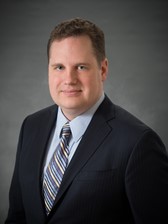Dr. Brian Weeden

Dr. Brian Weeden is the Director of Program Planning for Secure World Foundation and has nearly two decades of professional experience in space operations and policy.
Dr. Weeden directs strategic planning for future-year projects to meet the Foundation's goals and objectives, and conducts research on space debris, global space situational awareness, space traffic management, protection of space assets, and space governance. Dr. Weeden also organizes national and international workshops to increase awareness of and facilitate dialogue on space security, stability, and sustainability topics. He is a member and former Chair of the World Economic Forum's Global Future Council on Space Technologies, a member of the Advisory Committee on Commercial Remote Sensing (ACCRES) to the National Oceanic and Atmospheric Administration (NOAA), and the Executive Director of the Consortium for Execution of Rendezvous and Servicing Operations (CONFERS).
Prior to joining SWF, Dr. Weeden served nine years on active duty as an officer in the United States Air Force working in space and intercontinental ballistic missile (ICBM) operations. As part of U.S. Strategic Command's Joint Space Operations Center (JSpOC), Dr. Weeden directed the orbital analyst training program and developed tactics, techniques and procedures for improving space situational awareness.
Respected and recognized as an international expert, Dr. Weeden's research and analysis have been featured in The New York Times, The Washington Post, National Public Radio, USA Today, The BBC, Fox News, China Radio International, The Economist, The World Economic Forum's Annual Meeting in Davos, academic journals, presentations to the United Nations, and testimony before the U.S. Congress. Read Dr. Weeden's publications.
Education
Dr. Weeden holds a Bachelor of Science Degree in Electrical Engineering from Clarkson University, a Master of Science Degree in Space Studies from the University of North Dakota, and is also a graduate of the International Space University Space Studies Program (2007, Beijing). He has a PhD in Public Policy and Public Administration from George Washington University in the field of Science and Technology Policy.

 Share
Share